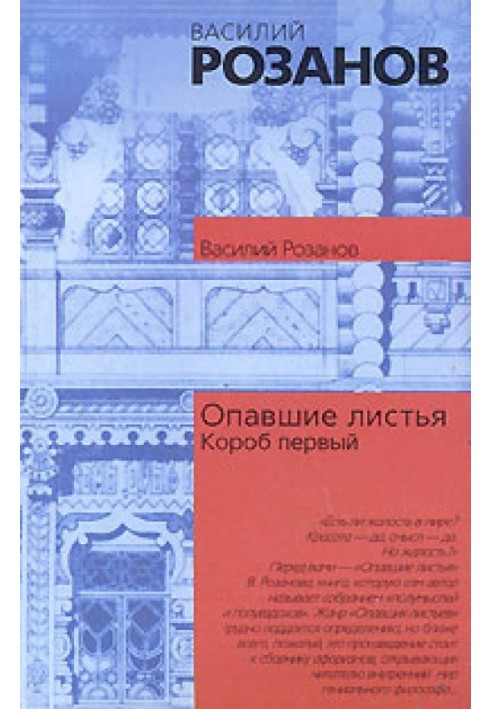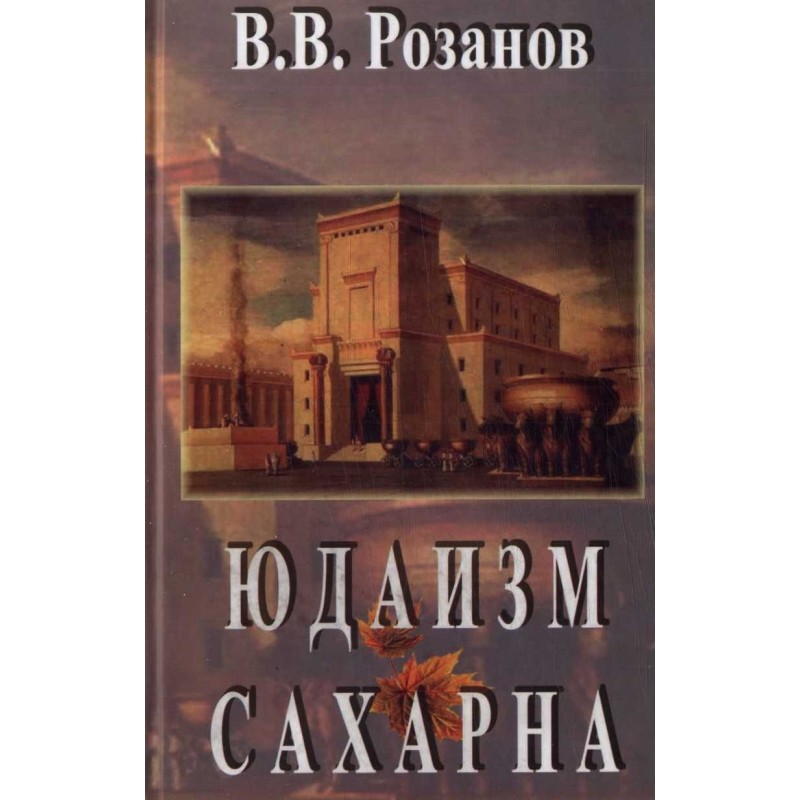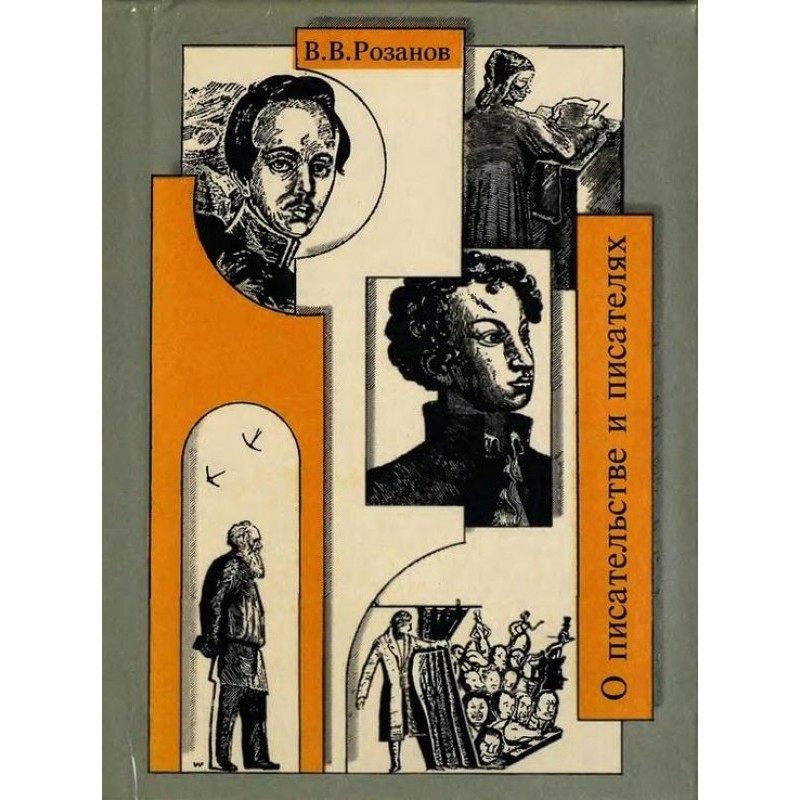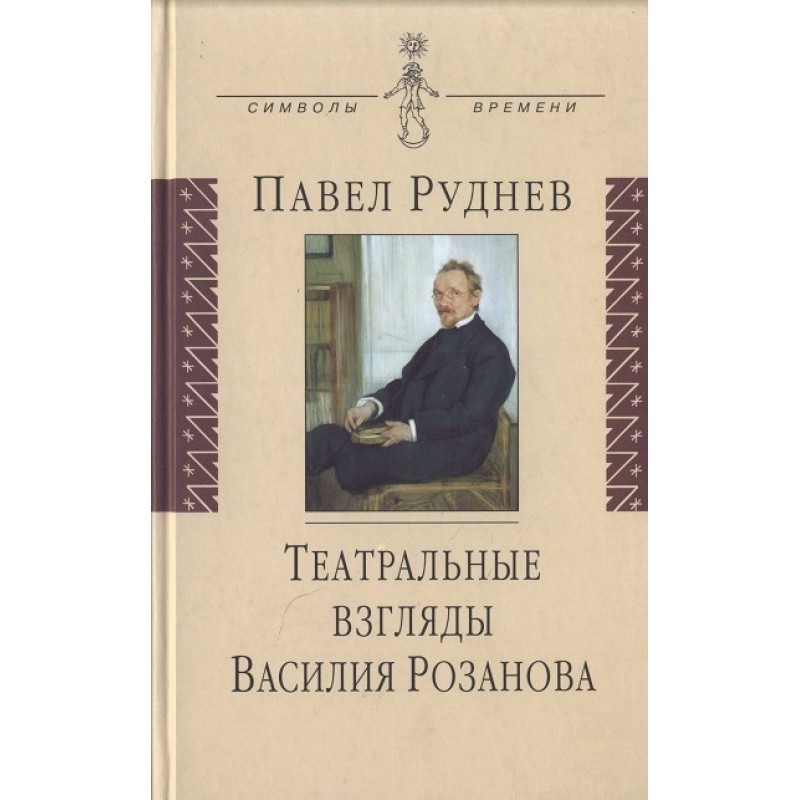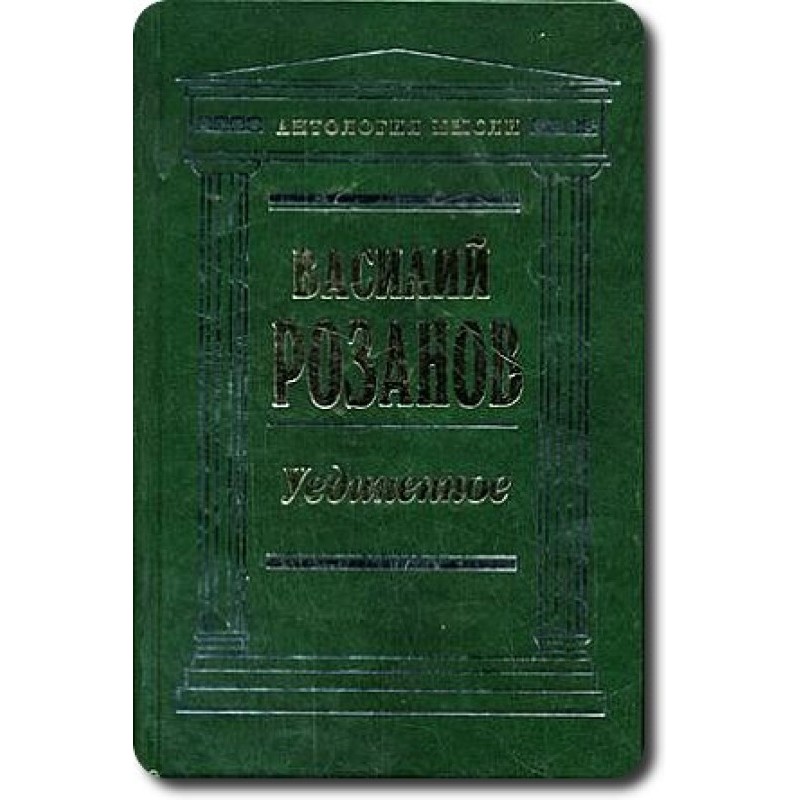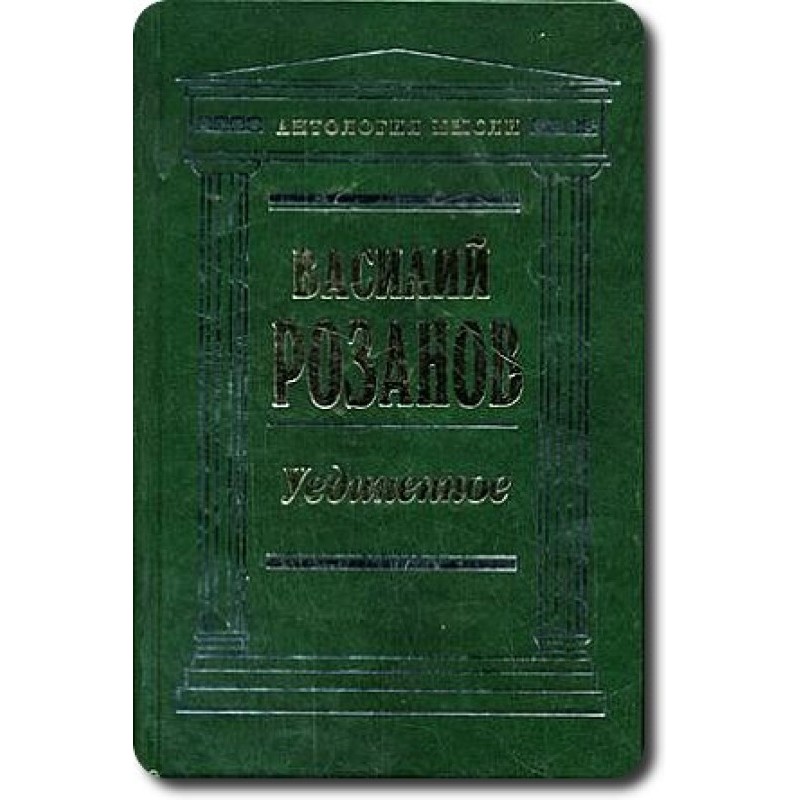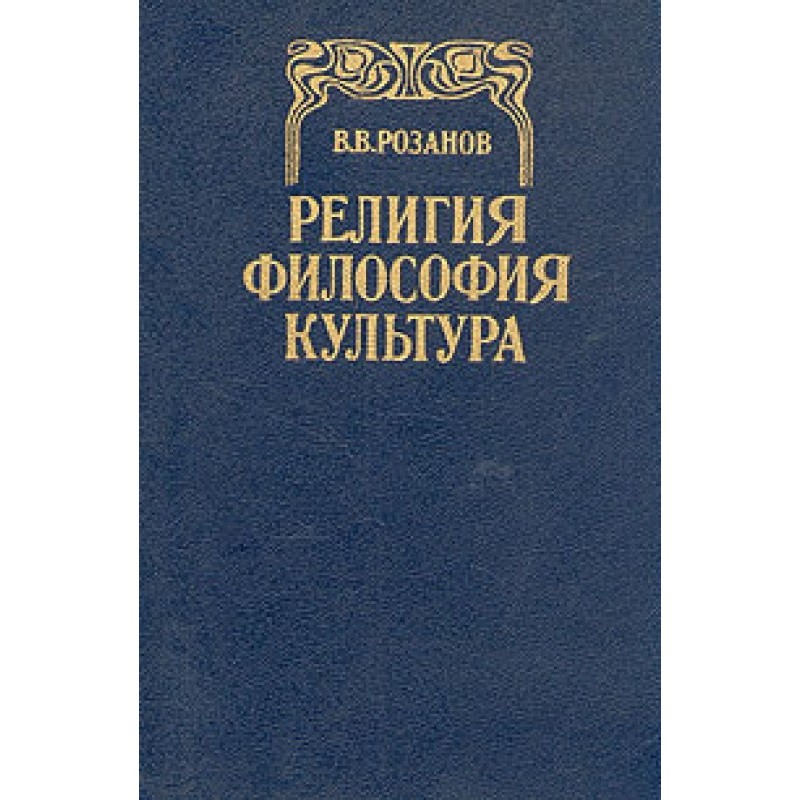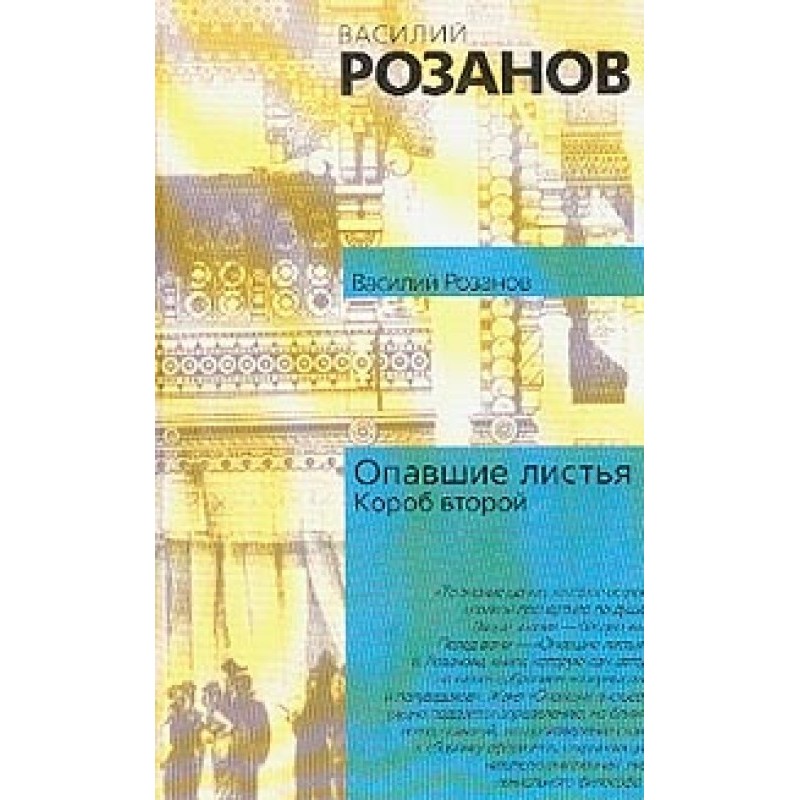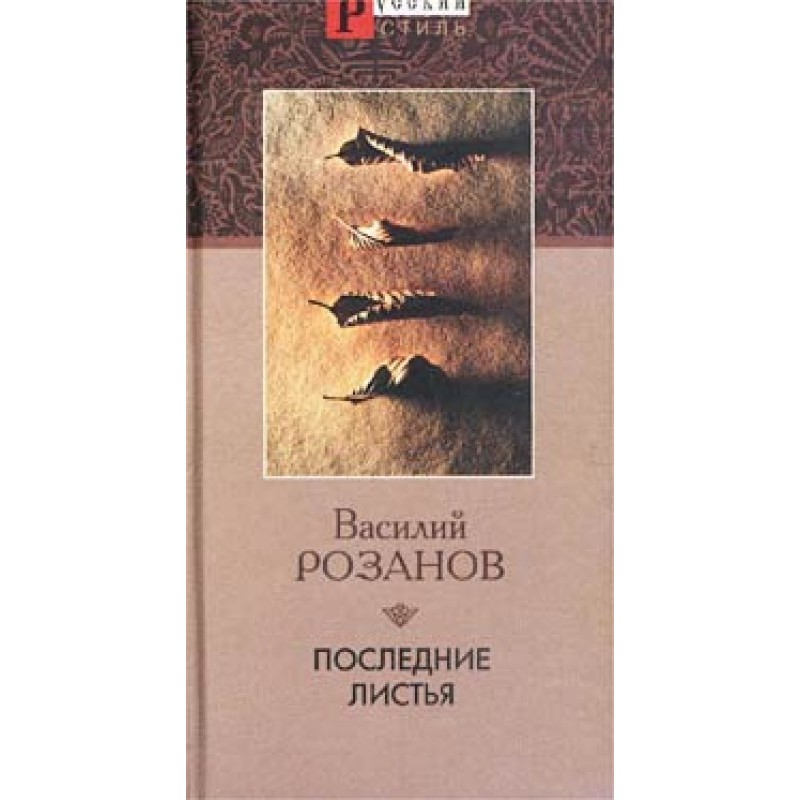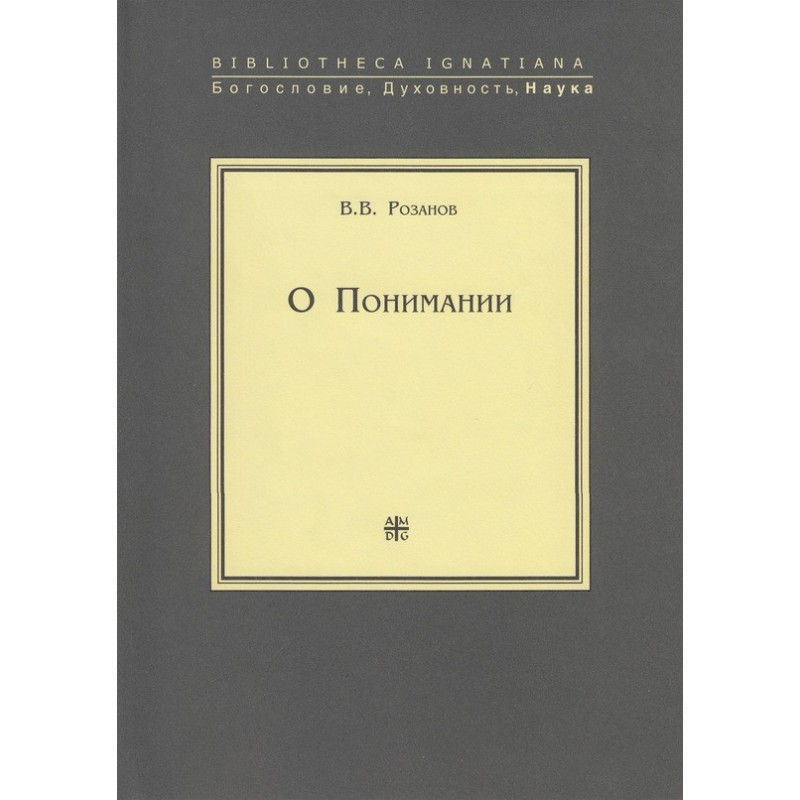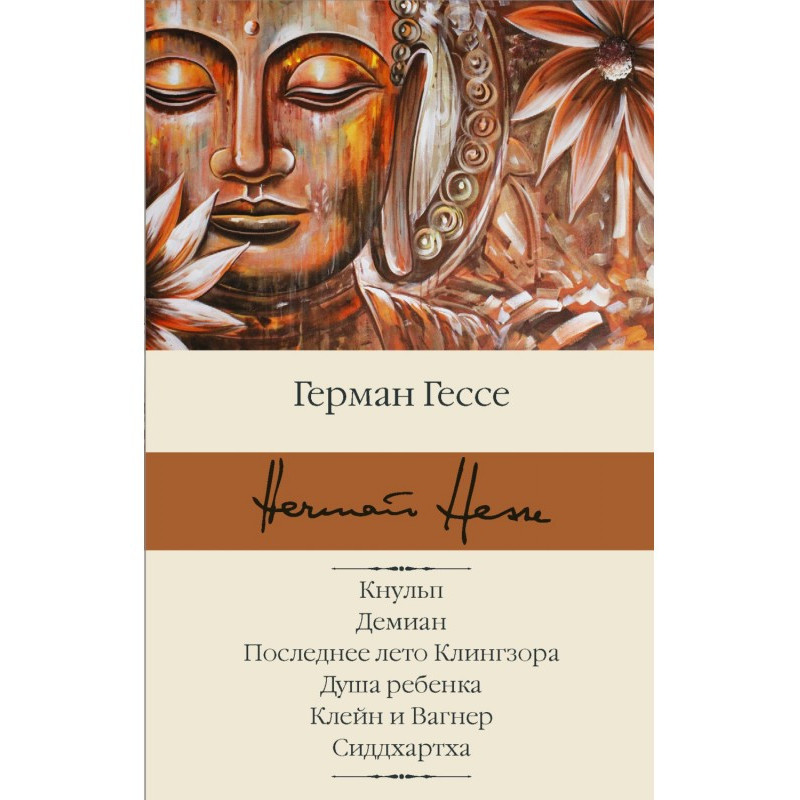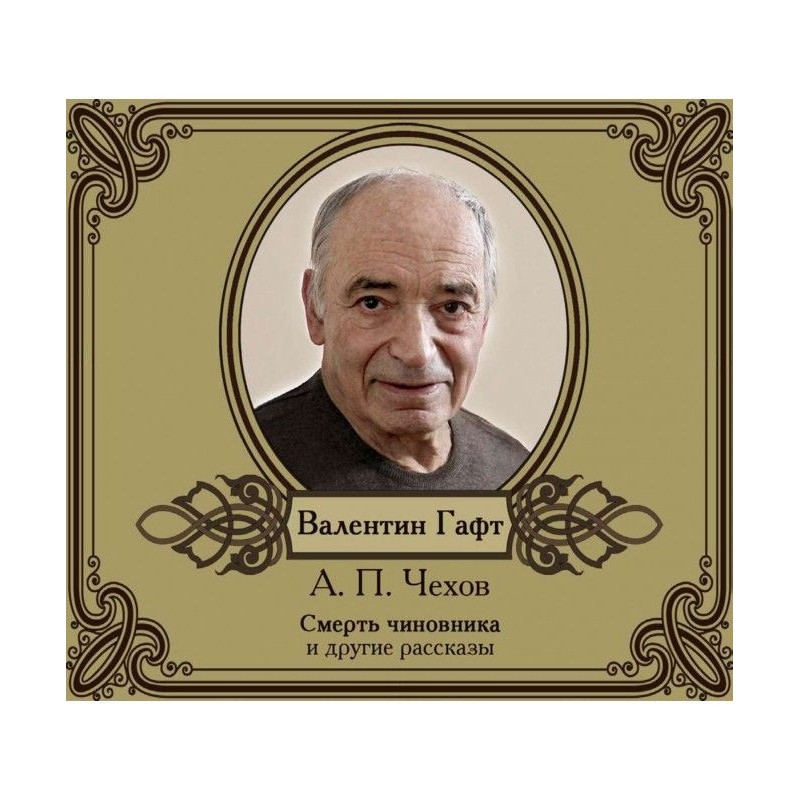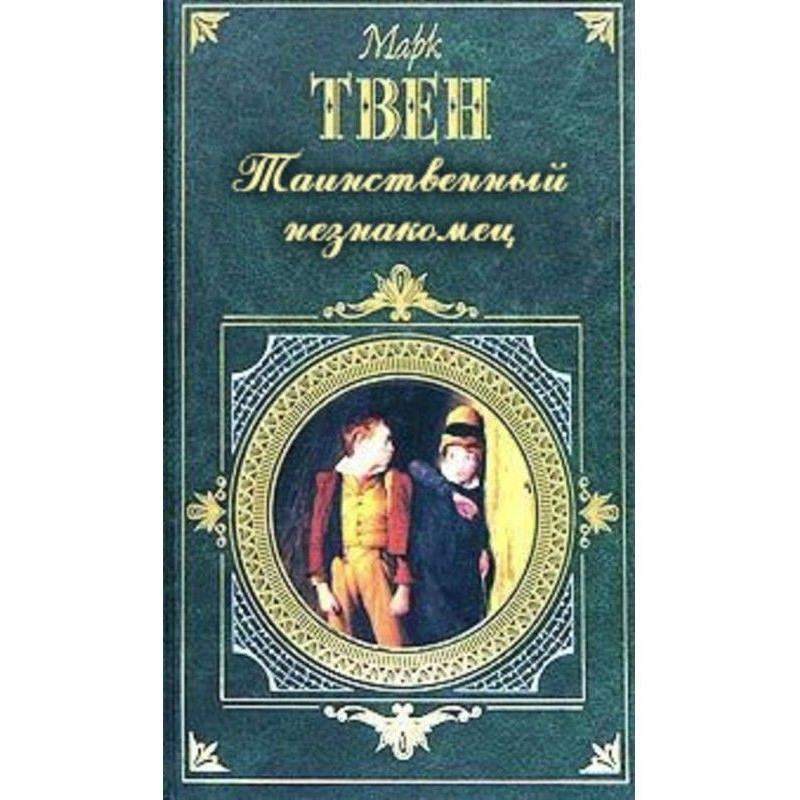Fallen leaves (Box one)
 Instant download
Instant download
after payment (24/7)
 Wide range of formats
Wide range of formats
(for all gadgets)
 Full book
Full book
(including for Apple and Android)
V.V. Rozanov (1856–1919) was the most prominent figure in the heyday of Russian philosophy of the “Silver Age,” a subtle stylist and creator of a philosophical theory that was original to the point of paradox—a theory that had a significant influence on the minds of the late 19th and early 20th centuries. and has experienced a kind of “rebirth” today. Years and decades pass, but the power and depth of Rozanov’s thought is still timeless... “Fallen Leaves” is a unique experience for Russian philosophy. Rozanov does not set out his teachings, his constructed worldview, he feels, reflects and writes down his thoughts and observations on pieces of paper. Why is the work called “Fallen Leaves”? Because in the original his manuscript consisted of two boxes with a heap of scribbled leaves. “Fallen Leaves” is one of the most famous works of V.V. Rozanova. It is based on the principle of random notes: notes in the margins, thoughts, impressions, sometimes formless and inconsistent.
Data sheet
- Name of the Author
- Василий Розанов Васильевич
- Language
- Ukrainian
- Release date
- 2003
Reviews
Вражаючий філософський твір, що залишає слід у душі
"Опале листя" В.В. Розанова - це не просто книга, а справжня подорож у світ думок і переживань автора, які відображають епоху "срібного віку" російської філософії. Розанов, як тонкий стиліст, майстерно передає свої роздуми, які, на перший погляд, можуть здаватися випадковими нотатками, але насправді вони глибоко структуровані і пронизані філософським змістом. Читання цієї книги – це справжній виклик для розуму, адже автор змушує нас замислитися над сутністю буття, любові, смерті та мистецтва. Принцип випадкових записів робить текст живим і динамічним, а також надає йому певної магії. Хоча переклад може містити деякі недоліки, це не зменшує цінності самого твору. "Опале листя" - це книга, яку варто прочитати кожному, хто цінує філософію та глибокі роздуми про життя. Вона залишає слід у серці і розумі, нагадуючи про те, що думки, як і опале листя, можуть бути красивими і значущими, навіть якщо вони не завжди впорядковані.

